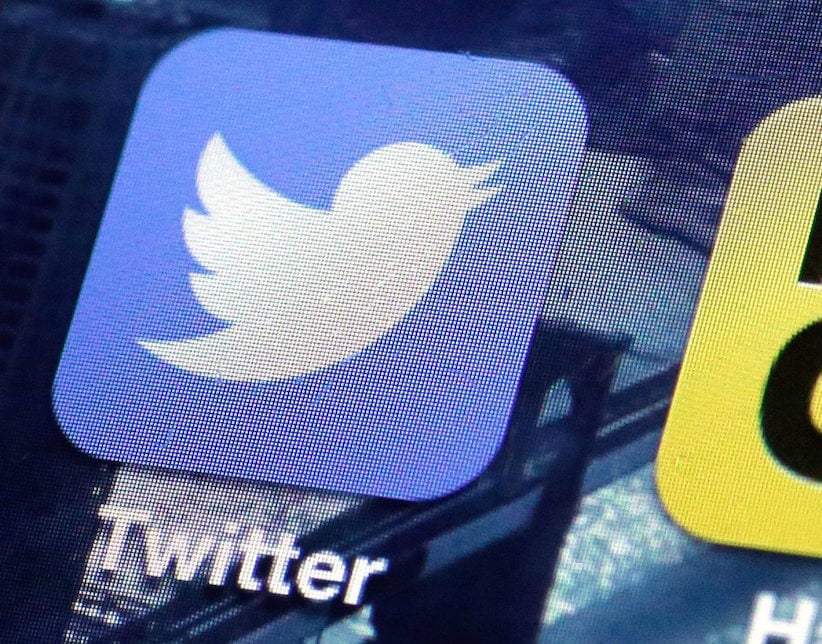

What is the true nature of humanity? In the absence of society and its restrictions, do we exist in a state of perfect freedom, or absolute chaos? Lengthy philosophical treatises from the likes of Plato, Thomas Hobbes and Jean-Jacques Rousseau have mulled and debated these questions for millennia. While human nature hasn’t changed much, this eternal issue can now be contemplated in 140 characters or less: why do so many people act like complete jerks online?
Earlier this month, Maclean’s came face-to-face with an issue we’ve reported on many times: social media’s apparently endless capacity to fill itself with hatred and venom. Ottawa Associate Editor Shannon Proudfoot, an enthusiastic Twitter user, recently posted about the curious gender sorting of children’s toys. “Boys can be pirates, construction workers, firefighters. Girls can be seven varieties of princess,” she tweeted. It’s an entirely reasonable topic for a journalist to raise. Yet during the next week Proudfoot found herself the recipient of an endless flood of uninvited, often dangerous, invective. Space and good manners preclude us from offering more than a small sample: “You are scum,” “please kill yourself,” “stop abusing your children.” Most of this appeared to come from American anti-feminist groups at the behest of perpetually unhappy right-wing commentators such as Ann Coulter and Tucker Carlson. Before the deluge subsided, Proudfoot was forced to temporarily block or mute tens of thousands of hostile Twitter users. Following a death threat, police were involved.
Proudfoot’s experience is certainly not unique. Dog-piling—marshalling an army of angry online warriors against individuals who express views at odds with the mob—and other forms of online attacks have become depressingly common occurrences. Black actress Leslie Jones, star of this summer’s Ghostbusters movie, was mercilessly hounded by sexist and racist tweets from “movie fans” upset over her role in the all-female reboot of the 1980s comedy. When the Guardian newspaper in Britain took a close look at 70 million reader comments posted to its website dating back to 2006, it found eight of the top 10 targets for abusive or derogatory messages were female writers. The remaining two were black men. In similar fashion, online feminist mobs have targeted former Republican presidential candidates Rick Perry and Rick Santorum. The underlying issue isn’t the politics of Twitter users, but why online discussions can so quickly become cesspools of hate-filled rhetoric.
Freed from social conventions that govern face-to-face interaction, far too many Twitter users gleefully adopt an overheated mob sensibility on a range of politically charged subjects. Anonymity breeds contempt. As a result, responsible users can find their social media accounts overwhelmed by an interminable stream of hate, making meaningful conversation far too difficult.
The simplest solution is to ask everyone—politely, of course—to ensure their online behaviour aligns with how they act in the real world. Would you shout at a passerby because you disagree with a slogan on their T-shirt? Probably not. So why is it okay to accost complete strangers over Twitter under similar circumstances? Failing widespread adoption of the Golden Rule, users also have the ability to leave Twitter whenever they like. But retreating in the face of bullying leaves the bullies in charge. The same goes for efforts to muster mob attacks in revenge of dog-piles; adding more poison to the well is unlikely to improve water quality. “I like Twitter,” says Proudfoot. “I don’t want to be chased away, but it seems the jerks have all the power.” (She’s stayed on Twitter, and unblocked all the accounts she blocked.)
Twitter and the rest of the privately owned social media universe are free to set their rules however they wish. But if long-term survival is a goal, the overall experience for users must remain positive. More must be done to stem rage-filled attacks while maintaining Twitter’s laudable commitment to free speech and serendipitous communal interaction. A circuit breaker that allows users to pause incoming tidal waves of opprobrium might make sense. Stock markets use similar mechanisms to cool off panicked investors without compromising the integrity of the market. And credit card companies are sophisticated enough to know when your card is being used in ways that are at odds with past patterns. It is in Twitter’s best interests to find new ways to ensure users aren’t deluged by hateful messages from complete strangers. The status quo isn’t working.
Social media has become a big part of many people’s lives. As journalists, we appreciate the ability to communicate with our readers in diverse ways. It is therefore deplorable that bullies and hate-mongers have come to dominate so much of the conversation on Twitter. If social media has become uncivilized, perhaps it’s time for civilization to take it back.
[Source:-MACLEANS]






